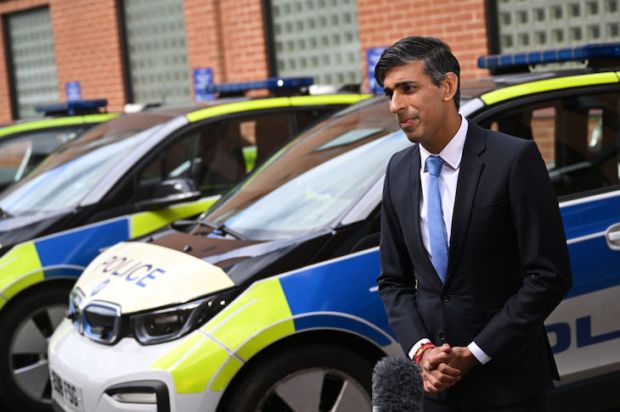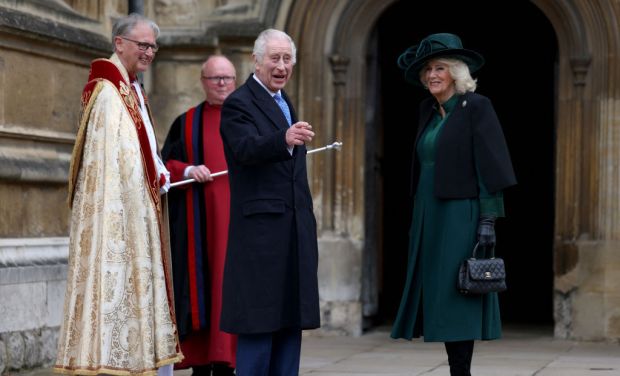This morning King Charles will take part in the state opening of parliament for the first time as monarch. The purpose of the King’s Speech is to set out the government’s priorities for the coming parliamentary session, which will be the final one before the next general election.
Much has changed since the last time this happened in May 2022, when Boris Johnson’s levelling up agenda formed the centrepiece of the last Queen’s Speech. While there will be some elements of continuity, it’s also Sunak’s chance to draw political dividing lines with Labour. One controversy that is expected to be avoided is Suella Braverman’s plan to restrict the use of tents by homeless people. This will not actually be in one of the bills announced today, despite speculation over the weekend.
Below are a list of law changes that will likely be announced later today.
Crime and Justice Bill
This bill will introduce measures intended to toughen some sentences and tackle offending, ahead of an election in which crime is expected to be a major theme. The legislation is expected to include mandatory prison sentences for repeat offenders of crimes such as theft, burglary and shoplifting. Convicted rapists will have to spend their entire sentence in prison rather than be eligible for parole at the halfway point. The bill will also force criminals to attend their sentencing hearings, following the Lucy Letby case. There will be questions for Labour on how they choose to respond to this – especially some of the tougher measures.
Tobacco Products Bill
This legislation is needed to enact Rishi Sunak’s plan to introduce a generational smoking ban by phasing out all legal tobacco sales in England. Under the proposed ban, anyone who was born on or after January 1, 2009 will never be allowed to buy cigarettes. The legislation could also enhance regulation of vape sales, amid fears that products are being deliberately targeted at children. MPs have already been promised a free vote on the ban. It will face resistance from parts of the Tory party – Liz Truss has already signalled she will vote against it. However, given Labour will likely back it, the government should win comfortably when the vote comes next year.
Investigatory Powers (Reform) Bill
The legislation will force technology firms to inform the Home Office prior to installing new privacy and security features and enable the government to disable them. It will also increase the government’s power to make foreign firms comply.
Football Governance Bill
Sixty-four professional clubs have entered administration as a result of financial gambles and poor governance since 1990, with two-fifths located in the north of England. Following pressure from red wall Tories, the government is finally expected to give the green light to a football regulator and licensing system, after much delay. The new system will set a standard of fan engagement as part of the licensing regime, with enhanced scrutiny of owners and their finances. Core assets, like stadiums, would be protected, while the regulator would prevent clubs from joining breakaway leagues like the short-lived European Super League project in 2021.
Leasehold Reform Bill
Ministers have already confirmed that there will be a bill to phase out leaseholds, with all new houses, though not new flats, in England and Wales to be sold as freehold properties. This bill will reform leasehold rather than scrap the existing system entirely, with ground rents for new and existing properties capped and the default length of leases set at 990 years rather than 99 years. This controversial change has been delayed for years, dating back to Theresa May’s time in Downing Street. Some Tory MPs want to amend it to include new flats, with Labour seeking to outstrip the Conservatives on this.
Oil and Gas Licensing Bill
Tory strategists hope to use this King’s Speech to lay some traps for their Labour opponents and there are few better examples than this piece of legislation. This bill has been drawn up ostensibly to ensure a continued supply of annual North Sea oil and gas licensing rounds. However it also offers a tricky conundrum for Sir Keir Starmer, who has ruled out granting any new licenses. The new bill will also allow companies to bid yearly for new licences to drill for fossil fuels in the North Sea.
Autonomous Vehicles Bill
This legislation aims to pave the way for driverless cars on Britain’s roads, via a new legal framework. Ministers hope autonomous vehicle companies will operating commercial services to the public within the next six years.
Offensive Weapons Bill
Following a spate of ‘zombie knife’ stabbings, this legislation aims to close existing loopholes around machetes. It will create an offence of carrying a prohibited blade with intent to harm and give the police greater powers to confiscate and destroy lawfully owned knives that they have reasonable grounds to believe may be used for crime.
Pensions Reform Bill
This legislation aims to unlock money from the £2.5 million British pension sector to fund infrastructure projects and start-ups. It aims to reduce the reliance on overseas investors and increase the returns on pension funds. The government hopes that they could translate into a 12 per cent bump in pension returns for the average earner who begins saving at 18 years old. Labour have previously argued for similar measures.
Media Bill
The bill will scrap the controversial post-Leveson law that meant newspapers were liable to pay the legal costs for both sides in libel and privacy cases, regardless of who won. Labour’s position on this will be watched closely, ahead of newspapers making their election endorsements. There will also be a stricter regulatory regime for video-on-demand platforms and moves to address the regulatory burdens for commercial radio.
Pedicab Licensing Bill
This bill aims to empower local authorities to ban nuisance or unscrupulous pedicab drivers in cities like London. It is expected to cut down on noise nuisance and regulate the fares of these three-wheel vehicles, amid fears that foreign tourists are being exploited with ridiculous bills.
Seven further bills are expected to be carried over to complete their passage in the next session. However, a bill being carried over is not a guarantee it will remain a government priority and continue to progress. The High Speed Rail (Crewe to Manchester) Bill will almost certainly not appear in the King’s Speech as it is no longer required now that the government has decided not to complete this section of the project. The remaining six bills that are likely to appear are the following:
Digital Markets, Competition and Consumers Bill
This piece of legislation aims to enhance consumers rights and protections for digital markets.
Data Protection and Digital Information Bill
This will reform data rights and the powers of the Information Commissioner’s Office.
Renters (Reform) Bill
The Bill had its second reading last month and heralds a huge shake-up of the sector after it was first announced in 2019 and introduced in May. The government confirmed recently that it will not bring in its controversial ban on Section 21 evictions until problems with the courts have been fixed.
Holocaust Memorial Bill
This hybrid bill is necessary to allow for the building of a Holocaust memorial and learning centre in Victoria tower gardens near the Houses of Parliament.
Economic Activities of Public Bodies (Overseas Matters) Bill
This bill will prevent public bodies and councils from campaigning against, sanctioning, or boycotting a foreign territory and is aimed at curtailing the activities of the so-called ‘BDS Israel’ movement.
Victims and Prisoners Bill
This will put the Victim’s Code on a statutory footing, to state minimum levels of service for victims of crime.
Got something to add? Join the discussion and comment below.
Get 10 issues for just $10
Subscribe to The Spectator Australia today for the next 10 magazine issues, plus full online access, for just $10.





















Comments
Don't miss out
Join the conversation with other Spectator Australia readers. Subscribe to leave a comment.
SUBSCRIBEAlready a subscriber? Log in